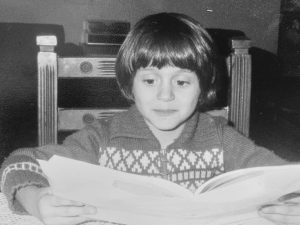My Story
 I believe we are all reflections of the source, we just choose different paths in life so our stories are told differently. Here is an overview of the path that guided me to this moment.
I believe we are all reflections of the source, we just choose different paths in life so our stories are told differently. Here is an overview of the path that guided me to this moment.
Courage, compassionate love for ALL and a deep-rooted respect for “others” are the three key ingredients that have empowered me to seek mastery in the art of inquiry and connections.
My father nicknamed me “the little black fish”, a character from a story that encouraged thinking outside the box, questioning the status quo, and following your inner voice to expand your horizons, learning at every opportunity and taking opportunities to help others. This had a deep impact on the way I viewed my being in the world.
In the larger context, my inner source of courage comes from believing that we are all reflections of the source; therefore, there is no ego involved to be afraid. I find this mentality breaks down any hierarchy in my mind; therefore, I am not afraid of voicing my thoughts. With the same token, I won’t judge other people for their way of being and thinking because I am not threatened by them. As Rumi beautifully words it:
“Your body is woven from the light above. Are you aware that its purity and swiftness is the envy of angels and its courage keeps even devils away.”
Growing up, we were asked every night to share what we learned, one thing new we tried, and we prayed for the poor, the homeless and the under-privileged. My father’s memorable words were: “May no parents be in a situation that cannot provide for their children.” Looking back, these were active lessons my parents taught us about thinking beyond ourselves, being compassionate, and being aware of our privileges.
Another memory I still cherish is that every night after dinner my parents sat together and shared tea. As we were playing and engaging with our own activities, we could hear them talk about their day, their clients, help they offered, lives they impacted, challenges that made them feel vulnerable, humble or frustrated. This was a clear lesson to us that our actions matter in other people’s lives and we are impacted by their wellbeing and welfare too. I should mention that both my parents were sociologists.
Last but not least is the impact of my mother’s bond with me and how it impacted my view of love. My mother’s love has always been consistent and unconditional source for me; therefore, I learned that love is abundant, the more you give, the more you create. Later in my life, I observed that she was a channel to guide us to loving all through one. She taught us how being loved is a natural state of being and not being in love takes much harder work (contrary to what many believe). This does not mean that if someone did not have an immediate source of human love around them growing up, they will never be able to love. In a way, relationships that we shape with our significant others (specially in romantic relationships) is an attempt to create or recreate that source for ourselves. This is the love that nurtures our physical, emotional and social well-being.
On a bigger scale, our secure and sustained love for another human being will be our door to the ultimate source of love. This is one of the areas that I help people with, to see love as an essential part of all of us. As Rumi puts it:
“With love, you don’t bargain. There, the choice is not yours. Love is a mirror, it reflects only your essence, if you have the courage to look in its face.”
Being born in an inter-faith, cross-cultural family and growing up in a social context where inner home values and outside values were not aligned, taught me at an early age that there is no single way to think, talk or be. I first learned to identify “the other” to protect myself and my family, then matured into the practice of co-existing with “the other,” and ultimately learned that I don’t need to understand “the other” as long as I can respect the beliefs that shaped their way of thinking and being. These all were possible with having courage as one of the fundamental pillars of my being.
This form of respect has little to do with admiration and it is more about trying to see the world from their perspective, knowing where their beliefs come from, basic human needs and anxieties that make them hold on to their beliefs and then see how I could be a relevant and effective agent of change without disrespecting them. When I facilitate highly sensitive meetings (be it at the UN or a Fortune 500 company), sometimes they have nothing in common and yet they sit around a table and hope to make a decision for the public health, product development or placements of workers that will affect millions of people. Going into these meetings with a preconceived notion about anything will be a hindrance to my work as a facilitator and advisor. This mindset is also applicable to parents who try to understand their children and relate to them, couples trying to make sense of each other’s standpoint and colleagues trying to work on a project with very different styles of thinking, relating and doing things.
“I might not understand you but I deeply respect you and what has shaped your beliefs. I welcome an opportunity to learn from you if you choose to offer me that privilege. Life is worth living for the teachable moments and for the people that share those moments with us”.